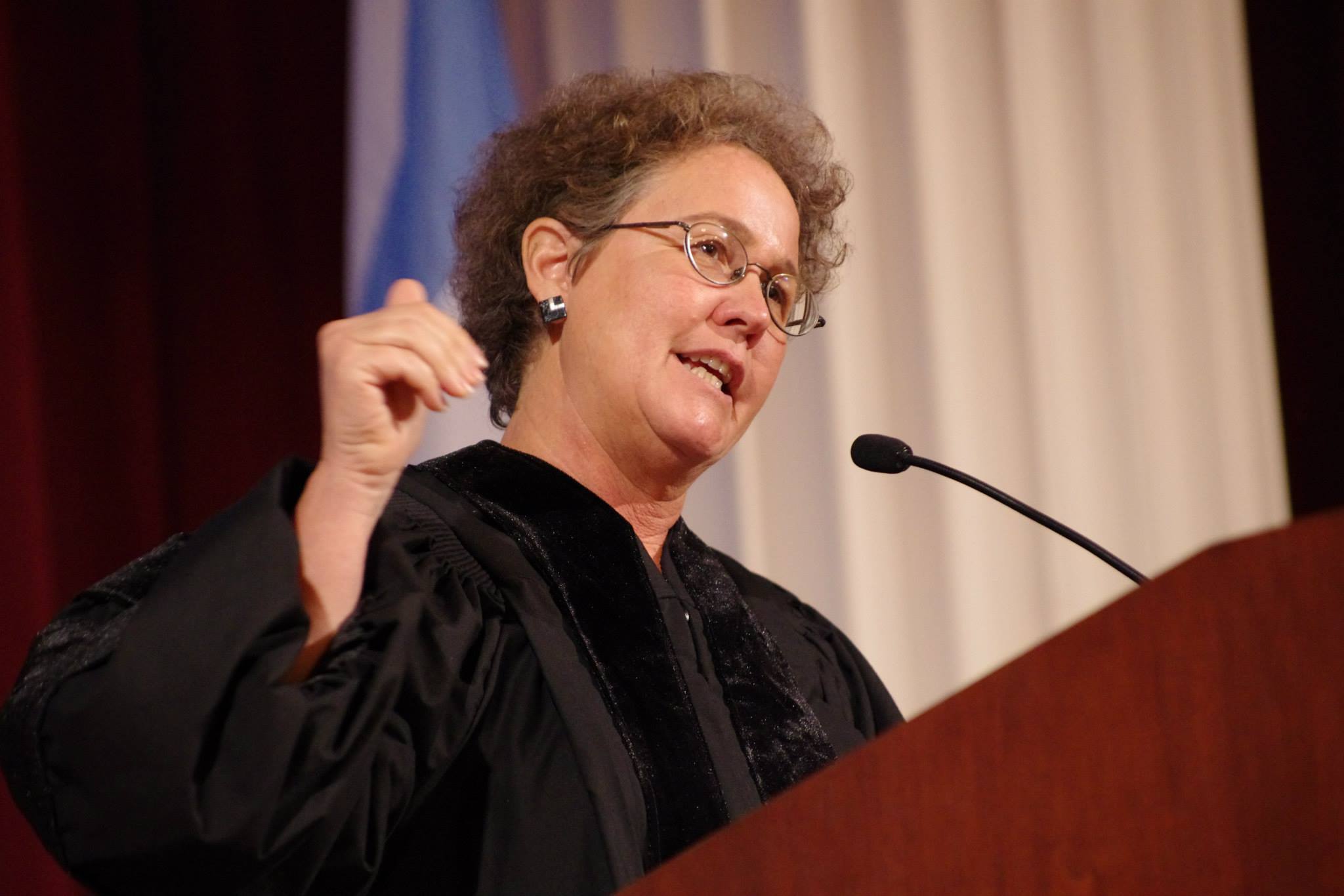The Learning First Alliance, the Erikson Institute and the American Educational Research Association recently honored the contributions to policy and scholarship of GSE professor Linda Darling-Hammond, who also just came out with a new book.

Linda Darling-Hammond, the Charles E. Ducommun Professor of Education, has won three major awards in the past two months, as well as celebrating the publication of her latest book.
Early in May, Darling-Hammond was named the winner of the 2013 Education Visionary Award from the Learning First Alliance, which is a partnership of 16 leading education associations with more than 10 million members. “Our organization is committed to improving public education and student learning and is honored to recognize an individual who has worked — and continues to work — so diligently to achieve this common goal,” said Cheryl S. Williams, the group’s executive director in a news release.
The award recognizes exceptional leadership in bringing together groups with a variety of points of view; tenacity in focusing on the needs of children from diverse backgrounds; respect for professional educators; and a demonstrated belief that public education is the cornerstone of our democratic way of life. Previous recipients include former U.S. Secretary of Education Richard Riley in 2011 and founder of the Center on Education Policy Jack Jennings in 2012.
Also in May, Darling-Hammond was awarded an honorary doctorate by the Erikson Institute, a graduate school in Chicago specializing in child development. According to a report on her address at the institute’s 46th commencement ceremony, Darling-Hammond called on graduates to use their education to make a difference through their work with young children. “Never doubt that an individual can make a difference — in fact, that is the only way that a difference gets made,” she said. “And know always how critically important your calling is to the welfare of children, families, this society, and the world — even when others may not recognize this fact.”
In April, Darling-Hammond was recognized with the inaugural Lifetime Achievement Award from Division L of the American Educational Research Association. (That division focuses on education policy and politics.) The award honors, according to the division’s website, “a career of research that is characterized by both its technical quality and impact in academe or the world of policy (or both).”
The latest addition to Darling-Hammond’s research career is her new book, Getting Teacher Evaluation Right: What Really Matters for Effectiveness and Improvement, which was released April 1 by Teachers College Press. “Darling-Hammond makes a compelling case for a research-based approach to teacher evaluation that supports collaborative models of teacher planning and learning,” according to a summary on the publisher’s website. “She outlines the most current research informing evaluation of teaching practice that incorporates evidence of what teachers do and what their students learn. In addition, she examines the harmful consequences of using any single student test as a basis for evaluating individual teachers. Finally, [she] offers a vision of teacher evaluation as part of a teaching and learning system that supports continuous improvement, both for individual teachers and for the profession as a whole.”
Darling-Hammond’s previous books include The Flat World and Education: How America’s Commitment to Equity Will Determine Our Future, which won the 2012 Grawemeyer Award in Education, and The Right to Learn: A Blueprint for Creating Schools that Work, which was the winner of the AERA outstanding book award in 1998. From 1994-2001, she served as executive director of the National Commission on Teaching and America’s Future, whose 1996 report, What Matters Most: Teaching for America’s Future, reframed the policy debate about teaching and teacher education.
In addition to serving as a professor, Darling-Hammond is the co-director of the Stanford Center for Opportunity Policy in Education. She also launched the Stanford Educational Leadership Institute and the School Redesign Network and has served as faculty sponsor for the Stanford Teacher Education Program.